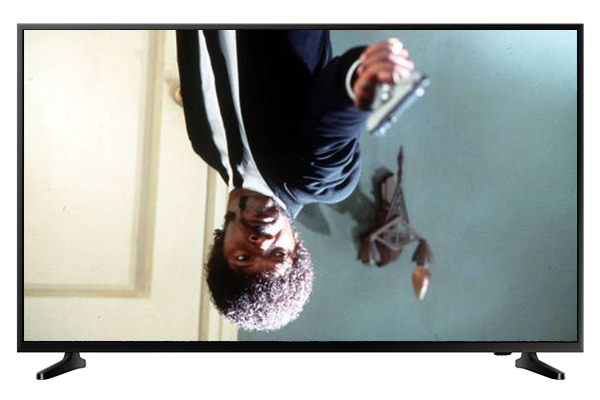- The Samsung Q900R is the best in the market, regardless of resolution
- Six alternatives to Netflix to enjoy 'online' television
- Sony will sell an 8K TV that costs what an apartment in Torrevieja
- Pedro, the Galician hacker that sweeps the United States teaching kidnap televisions
This may have happened to you. You have bought a new television with 4K, HDR, OLED and with a thousand other weird words , you want to release it watching one of your favorite movies and ... notes that something strange happens. And it pisses you off a bit.
Unless the TV is defective, the chances are that your eyes are distinguishing what has been commonly referred to as 'soap opera effect', or 'soap opera effect' in English. That the image goes too 'fast', that the actors move 'weird', that the camera sweeps are especially blurry.
The name is tremendously accurate. We can all recognize an old soap opera because the actors move fast. That is why many directors, from Steven Spielberg and Quentin Tarantino to Christopher Nolan, but also actors such as Tom Cruise , have been complaining for years to the big tech companies that make televisions that they are ruining their movies and series.
And it seems they have finally heard their pleas. The UHD Alliance , an association to which Hollywood studios belong, prominent members of the world of cinema and also large technology companies such as LG, Panasonic or Vizio, has announced that they will take action on the matter.
This is where what they have baptized as 'Filmmaker Mode', or 'film director mode' comes in, if we translate it into Spanish. In the words of Rian Johnson, director of 'Star Wars: The Last Jedi', it is "a pure and clear expression of what movies and movies meant when they were created." And according to Christopher Nolan, what he will allow is to respect "the speed of the frames, the color and the contrast, the aspect ratio and the coding so that the televisions can broadcast without problems."
The guarantees are faultless and provide a solution to a problem that, although not everyone notices or appreciates when you use your television, can be very annoying for those who do .
What exactly is the 'soap opera effect'?
Sony calls it 'MotionFlow', Samsung calls it 'Auto Motion Plus' and LG calls it 'TruMotion', but basically everything is the same: interpolation of images .
What twenty years ago was an effect born from low-quality, but very cheap video cameras, used in soap operas, nowadays they are produced by the advanced and expensive televisions that have reached homes and can reproduce the content with more frames per second ('frames per second' or 'fps' in English) than the most popular movies and series are filmed.
Image interpolation can always be deactivated , like other noise enhancements, extra contrast, more vivid colors or resolution smoothing that spoils, to some extent, the product just as the creators had made them.
Cinema is usually recorded at 24 frames per second (The Hobbit trilogy was recorded at 48, but it is an exception) and television at 30 frames per second, but more modern TVs can reproduce up to 120 frames per second. And some, to fill in the difference, 'interpolate' the image . That is, they put something in between that is not really there, and hence the effect.
That televisions reach these quotas of frame rate is something very positive for video games , for example, that they can work between 30 and 120 hertz and that, being a digital image that the player manages, they benefit from the added fluidity. The more fluently, the video game is better, according to the general consensus, to the point that this is preferred over higher image resolutions.
But in cinema, this produces an effect that is too realistic and, ironically, unnatural . And being a closed product, that is, it has been shot by a team with a specific technology (whether high resolution cameras or celluloid) and edited by another (providing it with a color, a light and other characteristic elements), the result it's not that good.
According to the criteria of The Trust Project
Know more- technology
- Star wars
- Sony
- Samsung
First impressions Samsung Galaxy Note 10 and Galaxy Note 10+: this is the new Samsung phones
Gadgets Xiaomi presents a mobile with 108 megapixel camera
Gadgets The Samsung Galaxy Note 10 will be priced between 950 and 1200 euros

